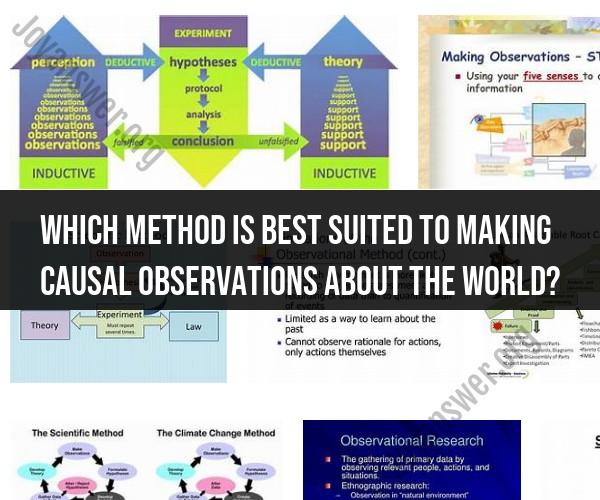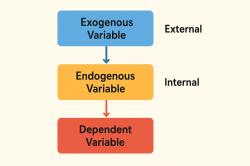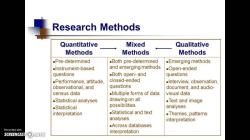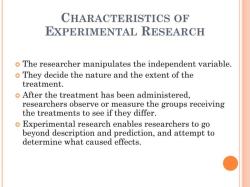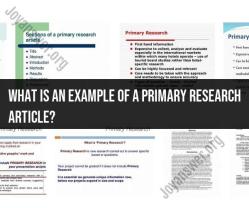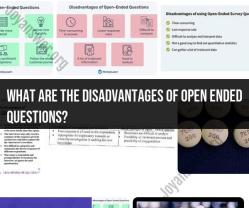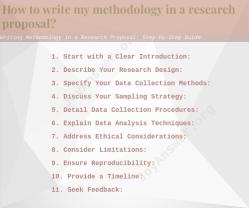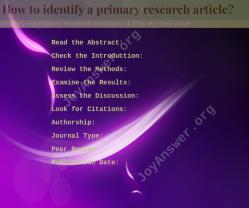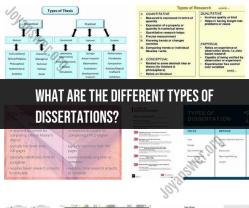Which method is best suited to making causal observations about the world?
Making causal observations about the world requires rigorous research methods that can establish cause-and-effect relationships between variables. The method best suited for this purpose is the experimental method. Here's why:
Controlled Environment: Experiments allow researchers to create a controlled environment where they can manipulate one or more independent variables while keeping other variables constant. This control is essential for isolating the causal factor being studied.
Random Assignment: In experiments, participants or subjects are often randomly assigned to different groups. This helps ensure that any observed effects are not due to preexisting differences between the groups, reducing the risk of confounding variables.
Manipulation of Variables: Researchers can deliberately manipulate independent variables to observe their impact on dependent variables. This manipulation helps establish a cause-and-effect relationship.
Measurement and Observation: Experiments involve systematic measurement and observation of variables, making it possible to quantify and analyze the effects of the manipulated variables.
Replicability: Well-designed experiments can be replicated by other researchers, which helps validate the findings and ensure that they are not due to chance or specific circumstances.
Temporal Order: The experimental method establishes a clear temporal order between the cause (independent variable) and the effect (dependent variable), demonstrating that the cause precedes the effect.
Internal Validity: Experiments are designed to maximize internal validity, which means that they are structured to minimize alternative explanations for the observed outcomes. This strengthens the causal inference.
While experiments are often considered the gold standard for establishing causal relationships, it's important to note that not all research questions can be answered through experiments. Some ethical, logistical, or practical constraints may limit the use of experiments in certain fields or for certain research questions. In such cases, researchers may employ other research methods, such as quasi-experiments, longitudinal studies, or observational studies, to make causal inferences to the best of their ability.
Ultimately, the choice of research method depends on the research question, the nature of the variables involved, and the ethical considerations, and researchers should select the method that best aligns with their specific goals and constraints.
